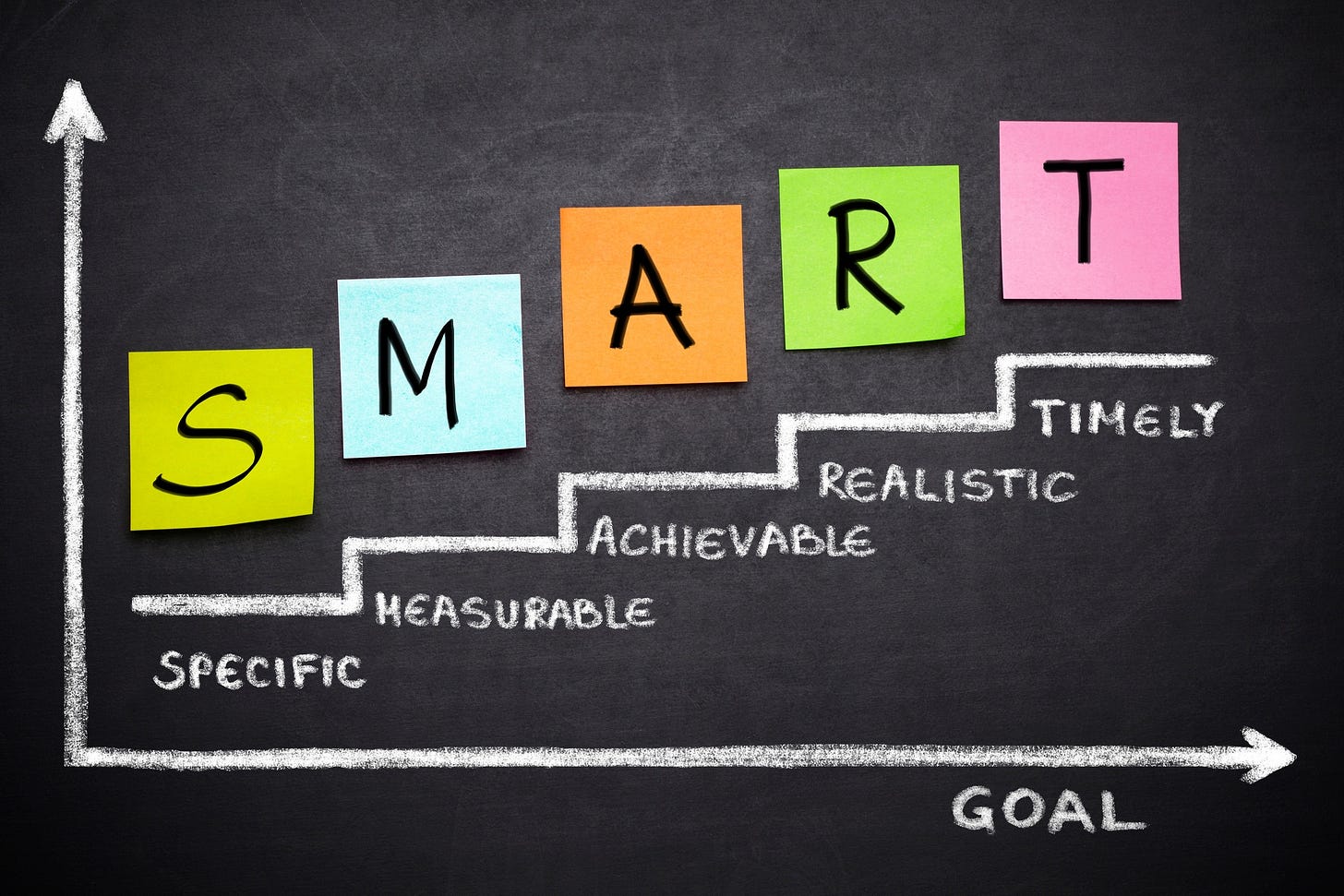DBAP
discarding political correctness facilitates cognitive enhancement: a case study
If you’re a warfighter or serious athlete, then you’re probably familiar with the phrase “don’t be a pussy” (DBAP). If you don’t use it yourself, you almost certainly know someone who does. Proponents of political correctness (PC) might demand that this phrase not be contemplated, much less uttered aloud. I hope to demonstrate how this is a small example of how toxic PC can be to the development of ultimate human performance. Perhaps it isn’t appropriate for a family dinner conversation, but we can’t understand the world of elite cognitive performance without understanding the role that highly provocative “power statements” play in helping the best of the best accomplish goals that require overcoming adversity difficult for most to even imagine.
I’ll briefly tell the story of my history with this phrase, then talk about how using it (or phrases like it) in the framework of U.S. Army Master Resiliency Training (MRT) can help you achieve your goals. For me, it all began on a hot summer day in Maine shortly before the turn of the millennium. I was out picking blueberries with my cousin Daniel who is almost a decade my senior. At one point, I happened upon an especially dense thicket of blueberries on uneven terrain surrounded by plentiful thorny foliage. Dan said, “Hey Grant, go pick those berries!”. Perhaps as a consequence of being gentled by my momma, I protested that, “it was all thorny” to which this most competent of mentors replied, “You just have to remember the #1 rule of berry picking, Grant… don’t be a pussy.” Something suddenly clicked. Getting those berries was a lot easier than having to internalize that I was, in fact, a pussy and would remain one unless I modified how I handled myself in uncomfortable situations. Later that evening Dan drove the point home by explaining to my father that I learned the #1 rule of berry picking. When prompted, I shared with my father what I had learned. He simply nodded sagely, and said “Yeah, I can’t argue with that.”
Eventually I would learn from Dan that this was actually, “Pretty much the #1 rule of everything.”
In the following years I used this power statement routinely. I had to use it a lot, as I found that I was naturally inclined to avoid discomfort and bitch incessantly about trivial irritations. These were hard habits to break, but I had a goal in mind: I wanted to become a man. And I recognized that I simply wasn’t there, not even close. As the years came and went, I used this phrase to adopt a habit of accepting discomfort and hardship without complaining too much. I applied this in the weight room and other relevant situations like martial arts training and competition. Eventually I found myself in Egypt fortunate enough to be training with their heavyweight kickboxing champion in his small dojo in Dokki. To this day, I can’t imagine anyone tougher than Amr Al Alfy. This toughness paired with a magnanimous nature made me admire Amr tremendously. After a few months of training and getting my ass kicked I made some off the cuff remark about trying not to be such a pussy. In response, Amr just stated in a matter of fact and utterly convincing manner, “No, you’re tough man”. In my own mind, this served as validation that I had achieved my goal and transitioned from boy to man.
In an effort to not get sidetracked by deep questions as to what manhood is and the meta-cognitive role of validation in ego and identity, let me simply close out this little walk down memory lane with an assertion to belabor my point: I’ll swear to the end of my days that routinely prompting myself over the years with the simple phrase “don’t be a pussy” was instrumental in my transition from boy to man.
I’m not some kind of outlier in this regard. This power statement is more common in elite performers than most people realize, and I’ll provide just a couple examples to prove it.
Multiple unnamed SOF operators
2x Mr. Olympia Chris Bumstead
Since the examples so far have been men, it might be an appropriate time to address a potential criticism of this power statement prior to transitioning into the details of how these are nested in the MRT framework. If you’re thinking to yourself that this statement should be discarded because it can’t be used by women, then you are wrong. I know for a fact that multiple women have made use of this power statement to great effect, some while filling traditionally masculine roles, but not all. To be sure, I would bet my life that it is used more commonly by men, but who cares? Power statements are meant to be tuned to generate motivation in the individual using them in order to generate/maintain action. If you’re tempted to straw man what I’m saying as denigrating women because it is possible to construe it as “don’t be feminine” all I can say is that if that was the case, it wouldn’t even work for most of the people that use it, because most people aren’t sexist or misogynist. The fact that I can promise you there are feminine women that have used this phrase successfully should prove to you that human communication and motivation isn’t simple enough to castigate a phrase as totally worthless because it rubs you the wrong way. In general, overlaying your values onto others is an excellent way to ensure that you’ll never understand motivation in the meta-cognitive sense. If this is something you are in the habit of doing, maybe set a goal and try to fix it!
I’ll skip right over how to use the Specific Measurable Achievable Realistic and Timely criteria and quite a few “laying the groundwork” steps MRT employs in the goal setting skill. What MRT adds to the goal setting framework pertinent to this discussion is a way to systematically turn SMART goals into behaviors that actually result in achievement. The way this is done is by developing a list of “action statements” that are required to accomplish the goal. These action statements are all tangible actions that allow you to assess in real time whether or not you are working towards your goal. Action statements should fit the SMART criteria themselves, like little goals within goals. If you’re in the middle of a training iteration where you have little control over your environment, the action statement could be something as simple as “don’t quit”. With challenging goals, these actions will often be things you don’t want to do. If you really wanted to do them (aka if you were intrinsically motivated), then you probably would’ve already achieved the goal long ago. This is where we sprinkle on the magic of the power statement. Power statements need to be three things, Purposeful, Productive, and Possible aka P3. This comes across to me like an attempt to make the MRT material testable (the dope alliteration makes me suspicious). To really get at the purpose of the power statement, I like to focus on the latter part of the textbook definition:
A power statement is a component of goal setting that meets P3 criteria and represents how you need to think to energize behavior with confidence.
Is it not obvious how well DBAP is likely to fit these criteria in the minds of military age males?
Although DBAP can be used to give yourself the motivation to do mundane things like floss your teeth or not buy that box of cookies at the store, it really shines when facing conditions of extreme adversity. In circumstances where failure is not an option, having thoughts floating around in your head suggesting otherwise is a NO-GO. Sure, after you’ve failed, thoughts like “it’ll be OK” and “my mom will still love me” are great, and can help you “avoid thinking traps”1 that paralyze the purposeful action required to overcome the depression and hopelessness that can accompany failure, but before you fail, those thoughts are pure poison. If you want to improve your chances of accomplishing heroic feats way outside of your comfort zone, then those thoughts can’t be tolerated. If you’re on mile 16 of a forced march with 80lbs on your back and a 240B machine gun in your hands, your feet are bleeding out of your boots, and your legs are cramping in protest, your “low brain”2 will do everything it can to mitigate the threat it will surely perceive from the countless afferent neurons carrying a violent storm of action potentials centrally where they can be used to influence your behavior. At this point, treacherous thoughts may intrude upon your psyche assuring you that it will all be OK if you just quit. If you’ve already made the choice that quitting is not a luxury you can afford, choke those thoughts the fuck out with the mantra doubtlessly repeated in the minds of elite warriors in untold languages across space and time, and don’t be a pussy.
“Avoid thinking traps” is an MRT skill that builds the “Mental Agility” competency
“Low Brain” is a very useful term that maps to genuine neuropsychology I initially became familiar with reading the book on eating disorders entitled “Brain Over Binge”





To take this in a different direction, one not endorsed by H2F Man: What's worse than "toxic masculinity"? The toxic lack of masculinity. You benefitted from having strong role models. Men who were "down-to-earth" as my generation would say -- "based" is the new term, good at what they did, and comfortable in their own skins. We have now generations of young males growing up with absent fathers -- and with a general lack of functional adult males in their lives.
So these young males do not learn to deal with difficult situations and work through them. They do not understand that setbacks are normal -- and easily overcome. They do not understand the need for sacrifice, for self-discipline, to reach goals and obtain success. They are told everything should be easy, and that they are entitled to everything now -- right now. So they lash out. Behave anti-socially. Behave violently. In part, the denial of their biological masculinity was the foundation for these dysfunctional behaviors.
Testosterone is real. It affects body and brain development. For virtually all known species of mammals, the males take higher risks. Have shorter life-spans and/or proportionally diminish in relation to females as they age. In humans, we know the Pre-frontal cortex (the "executive" decision-making part of our brain & consciousness) takes on average longer to develop in males than in females. All other things being equal, we should expect young males to be predisposed to behave as they have throughout human history. Wokeness hasn't overwritten biology.
Young males without older successful male role models are at higher risk for nearly everything: dropping out of school, criminal misconduct, criminal violence, etc. Our misguided war against masculinity has now generational consequences across society: economic, social, quality of life, crime and violence, and more. The toxic lack of masculinity is what harms both individuals and their communities.
Stories have a way of driving a point home. It's easy to picture the boy in your story - a youngling walking in admiration of the men in his life, stunned when one of his mentors catalyzes the realization that to cross the barrier between his childhood state and his manhood he must adopt candid self-awareness in the relentless pursuit of the attributes that will help him obtain honor, strength, resources, and perhaps a wife and children of his own. This particular flavor of masculinity is quite endearing, and, to use a story to drive my own point home, hints at notes from The Lion King, The Jungle Book, and others.
I am a woman who considers herself very feminine despite some traditionally masculine inclinations, and I motivate myself with the phrase DBAP regularly. You mention in your article here that you can promise many women use this phrase successfully to motivate themselves to do difficult things. Since your newsletter speaks to performance optimization in the military, I'm sure you considered female usage of the term DBAP within the context of women in the service. But as a mother, a woman of a different sort of service, I have found the phrase to be internally motivating on mornings I feel tempted to linger in bed when my kids are are eating paper books and begging to color on the walls before I've had my first cup of coffee. Personally I do not understand the controversy around the phrase. It's as much a mantra as "all is well," as far as I'm concerned.
To be fair, as I mentioned before, I am a feminine woman who does enjoy many stereotypically masculine things. I practically get off to movies and books about glory, gore, and honor, I play the drums, I play jiu-jitsu, I pump iron, I cuss in jest and in anger, I'll enjoy my beer, but I savor my scotch, a good political debate is a preferred pastime to a trip to the salon, there's no joke too offensive for me, and I've been known to pewn some newbs on xbox live. So I understand the argument that I am only comfortable with this phrase because of what amounts to "a personality thing." But, to be blunt, I think it's more of a character thing. When I was a young girl, I was known to complain, whine, or lie my way out of challenging situations, but just as you wanted to become a man, I wanted to transcend my childish ways and enter the domain of womanhood. I will not claim that the world of masculinity is the same as the world of femininity or that a woman once told me not to be a pussy as if it were a requirement for coming into feminine maturity. Rather, along the way to my present state, I gained an appreciation for the sentiment behind the phrase you discuss here, only without the words for the phrase itself. As I grew, I recognized my own flaws in stark contrast to the people (men and women) I admired, but what was unique about the women I wanted to emulate is that although they were the cremé de la cremé in a world apart from the world of masculinity, they were able to interact with men, for better or for worse, with grace, without griping bitterly about the cruelty of nature to have made us all different. They were masters in the art of tenderness, but were mountains in a windstorm when the time came. A scene from an old Western (I'll edit this post if I can remember which one) comes to mind as an example of one thing that got the gears turning in my own mind during my adolescence. A woman was being threatened with rape by thugs that were terrorizing her town and she said to them (paraphrasing), "Go ahead. When you're through, all I'll need is a pot of boiling water and I'll be exactly as I was before." Meaning, of course, that she could withstand any torment, would not be intimidated, and would not spend her life tormented by the past. She would set herself right, she had the ultimate power to do so. This is one example of many I could give of the best of archetypical women behind why I think comfort with the phrase DBAP is a character thing - because getting comfortable with it first requires that you are an open vessel for its usefulness in whatever you endeavor to endure. Thankfully, most people have the capacity to embrace this power statement, or others, if they choose. Humans are resilient and versatile, after all. But I argue that those advocating for it's abolishment the loudest need it's message the most.
I could get into points on the hypocrisy inherent to PC...how preaching against DBAP but not the social modulator "don't be a dick" is yet another example of pathetic pandering, but I'm typing on a phone and my little thumbs are sore....owy!!!!!
Anyway, I'm a fan of DBAP. It strikes at internal fear, the mind killer, the freedom destroyer, the doom bringer, and it calls will into action. It's a tool, use it if it works, sheesh. And, bonus round, it's much catchier than Mike Tyson's "IFYTYLMF."